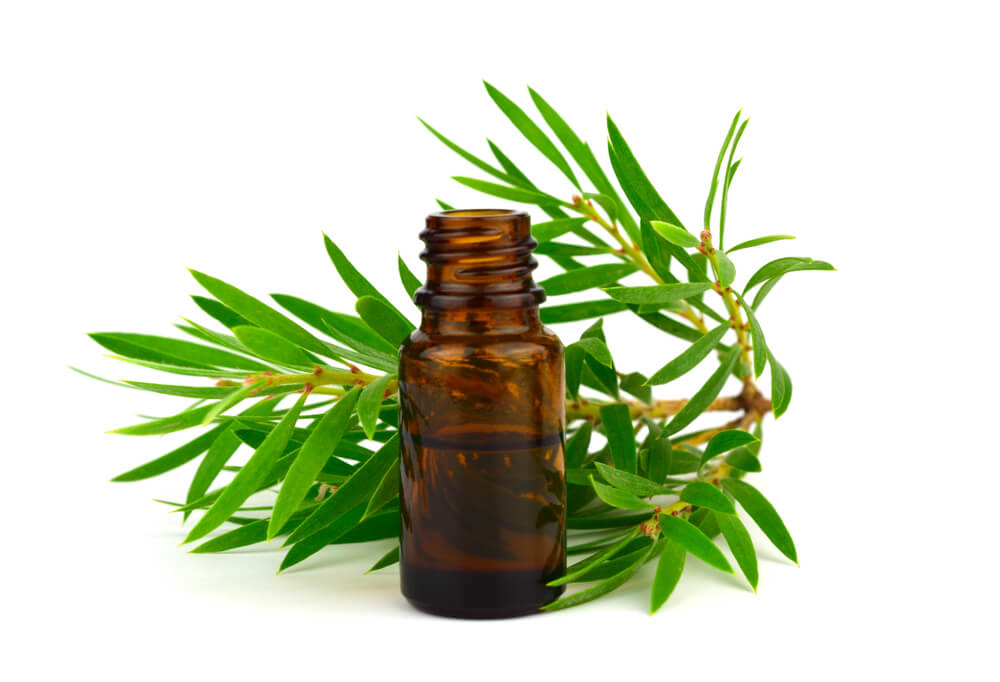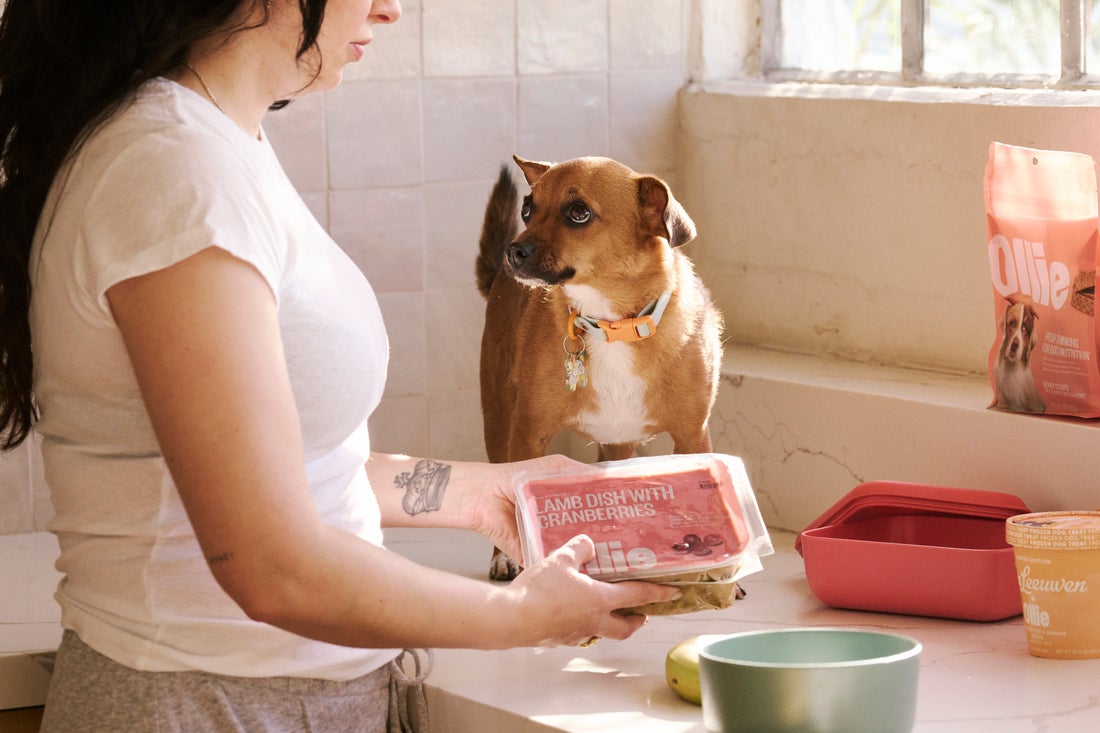Hey Ollie blog readers! We’re offering you an exclusive 60% OFF your starter box! Try now!
According to the Mayo Clinic, “Tea tree oil, also known as melaleuca oil is an essential oil that comes from steaming the leaves of the Australian tea tree. When used topically, tea tree oil is believed to be antibacterial. Tea tree oil is commonly used to treat acne, athlete’s foot, lice, nail fungus, and insect bites.”
This sounds like a healthy natural alternative to chemical treatments but is it safe for pets?
Can you use Tea Tree Oil for your Dog?
You will want to use caution when using tea tree oil for your dog. Tea tree oil taken orally is toxic for both humans and pets. It can be used (diluted) on your pet’s skin. You will still want to take precautions to minimize the licking of the treated areas.
Tea tree oil is a common ingredient in shampoo, grooming products, and bug repellents designed for dogs. If you are using these products be sure to read the directions very carefully so your pet does not get sick or suffer from burns or irritation on his skin.
The oil in these products is generally highly diluted and the amount is safe for your pet. If you have any questions about these ingredients don’t hesitate to contact the manufacturer a medical professional. If you have a smaller dog and you are concerned about the high concentration of tea tree oil you may want to forgo that product and use something less concentrated.

Risks associated with Tea Tree Oil
According to Dr. Ken Tudor for petmd.com, tea tree oil contains various types of chemicals called terpenes. These are the chemicals make tea tree oil the enemy of bacteria and fungus.
Terpenes can be rapidly absorbed by your pet both orally and through their skin, which is why pure tea tree oil is dangerous. The terpenes in tea tree essential oil are highly concentrated.
If the pure oil gets on your pet’s skin or if he eats it – he is at risk for poisoning.
Symptoms of tea tree oil toxicity include:
- Drooling
- Vomiting
- Skin burns or irritation
- Weakness
- Difficulty walking
- The appearance of partial paralysis
- Tremors
- Seizures
- Loss of consciousness
These symptoms are ranked from least severe to most severe and may not appear immediately. If you think your pet may have consumed tea tree oil you’ll need to monitor them carefully.
What to do if your pet is poisoned by tea tree oil
If you see some of the less serious symptoms of tea tree oil poisoning do not wait to contact your pet’s doctor or emergency care physician.
There is no antidote to terpenes but your pet can be treated by a doctor. After an exam your vet might try one or more of the following treatments:
- Activated charcoal: May be used to absorb toxins. This is not an ideal treatment if your pet’s reaction is severe as there is a risk of aspiration of the charcoal.
- Skin decontamination: May be used to treat affected areas. Your pet will also receive fluids and appropriate care to ensure he does not get sicker.
- Medication may also be used to treat effects including weakness, tremors, and seizures as indicated. Your vet may also prescribe medication to protect your pet’s liver function as terpenes can impact a dog’s liver.
How to prevent tea tree oil poisoning
The best way to prevent tea tree oil poisoning is to keep the undiluted oil away from your pet. If you use tea tree oil products use them as directed and not more concentrated or more frequently.
If you use tea tree oil in products in your home keep these away from your pet. This also includes diffusing tea tree essential oil in your home. The diffused oil can still be dangerous to your pet as it travels through the air in your home. If you want to use a diffuser do not allow your pet in the same room as the diffuser and only let it run for short periods of time. Continue to monitor your pet after use to ensure there are no signs of toxicity.
Use only tea tree oil products that are formulated for your pet and be sure to store them properly when not in use. While it is possible to DIY some of the products you might purchase for your pet unless you’re sure of the potency of the oils and inactive ingredients you are putting your pet at risk for poisoning. If you are considering the DIY approach be sure to do your homework and consult your pet’s doctor as needed to ensure their safety when using any products containing tea tree oil.
The Ollie blog is devoted to helping pet parents lead healthier lives with their pups. If you want to learn more about our fresh, human-grade food, check out MyOllie.com.
Tagged As:

The nutrition your dog needs,
the food they want.

Enjoying our articles? Subscribe our Newsletters and get new articles directly to your inbox
You might also like
18 September 2025
5 MINS READ
Can I Rotate Fresh Dog Food Flavors?
Yes, it’s safe to rotate fresh dog food flavors, and many dogs actually benefit from the variety. At Ollie, we offer multiple fresh recipes, like Beef, Chicken, Turkey, Lamb, and Pork so you can…
by Ollie Pets
18 September 2025
5 MINS READ
Is Fresh Dog Food Safe During Power Outages?
Fresh dog food is only safe during a power outage if it has stayed cold, specifically, below 40°F. Once the temperature rises above that point, bacteria can start to grow, and the food may no lon…
by Ollie Pets
18 September 2025
5 MINS READ
How Do I Store Fresh Dog Food While Traveling?
If you’re bringing fresh dog food on the road, keeping it cold is key. The best way to store it is in a cooler with ice packs or a travel freezer. At Ollie, our vacuum-sealed fresh food stays good…
by Ollie Pets







